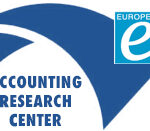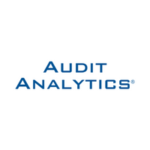In the complex world of financial reporting, Audit Committee Chairs (ACCs) play a pivotal role in ensuring the integrity of corporate governance. What are their personal objectives and incentives that guide them in their actions to maintain and improve audit quality? The recent European Accounting Review article “Audit Committee Chairs’ Objectives and Risk Perceptions: Implications for Audit Quality” (Jürgen Ernstberger, Bernhard Pellens, André Schmidt, Thorsten Sellhorn & Katharina Weiß) shows how ACCs’ personal objectives and incentives help explain their audit-related preferences and actions.
Based on an in-depth analysis of 23 interviews with ACCs of public German firms, the study reveals that ACCs are more than just dutiful ‘cogs in the corporate governance machine.’ As individuals, they pursue personal objectives and incentives, which significantly impact their audit-related decisions. The following quotes illustrate that ACCs are concerned with their personal reputational risks and their self-perceptions as good stewards:
I once said: “Listen, I’ve got a reputation to lose. And I have no desire whatsoever, after 40 years of success and successful retirement as a member of the Board of Management, to become the target of gossip. Then, someone else will have to do this job, please.”
I am not concerned about money or having to pay a fine. It is about my reputation!
What kind of issues, then, do ACCs worry about the most? To ACCs, risks emerge from scenarios that would indicate a loss of control, such as financial restatements or unexpected profit warnings. Consequently, ACCs prefer moderate and predictable financial reporting outcomes. They shy away from extreme accounting decisions, be it overly aggressive or overly conservative ones. This preference is rooted in their desire to maintain a reputation of being firmly in control of the company’s financial reporting.
ACCs rely on external auditors with specific attributes that align with their personal risks and objectives. They prioritize auditor industry expertise, particularly client-specific business model expertise, enabling auditors to effectively assess the risk associated with management’s financial reporting decisions. Additionally, ACCs value auditors in terms of eminence, priority-setting abilities, and pragmatism. Besides, ACCs prefer auditors who communicate proactively, informally, and in a timely manner. Whereas some of these attributes echo prior empirical evidence, our personal ACC risk management perspective makes clear that ACCs value auditors who can act as ‘early warning systems’ against threats to ACCs’ reputations.
ACCs are inclined to pay a higher audit fee to safeguard their personal reputation. They expect that auditors will provide transparency about the extremeness of management’s reporting decisions but do not expect them to actively engage in discussions with management. ACCs themselves are actively involved in influencing management’s decisions, for instance, in formal meetings of audit committee members, auditors, and management.
Implications
This study offers a fresh perspective on the determinants of audit quality, linking it to the personal objectives and risk perceptions of ACCs. It highlights the importance of understanding the personal incentives of key governance figures in enhancing audit quality. These findings underscore the need for considering the complex interplay between governance actors’ professional roles and the personal objectives, incentives, and (perceived) risks.



















